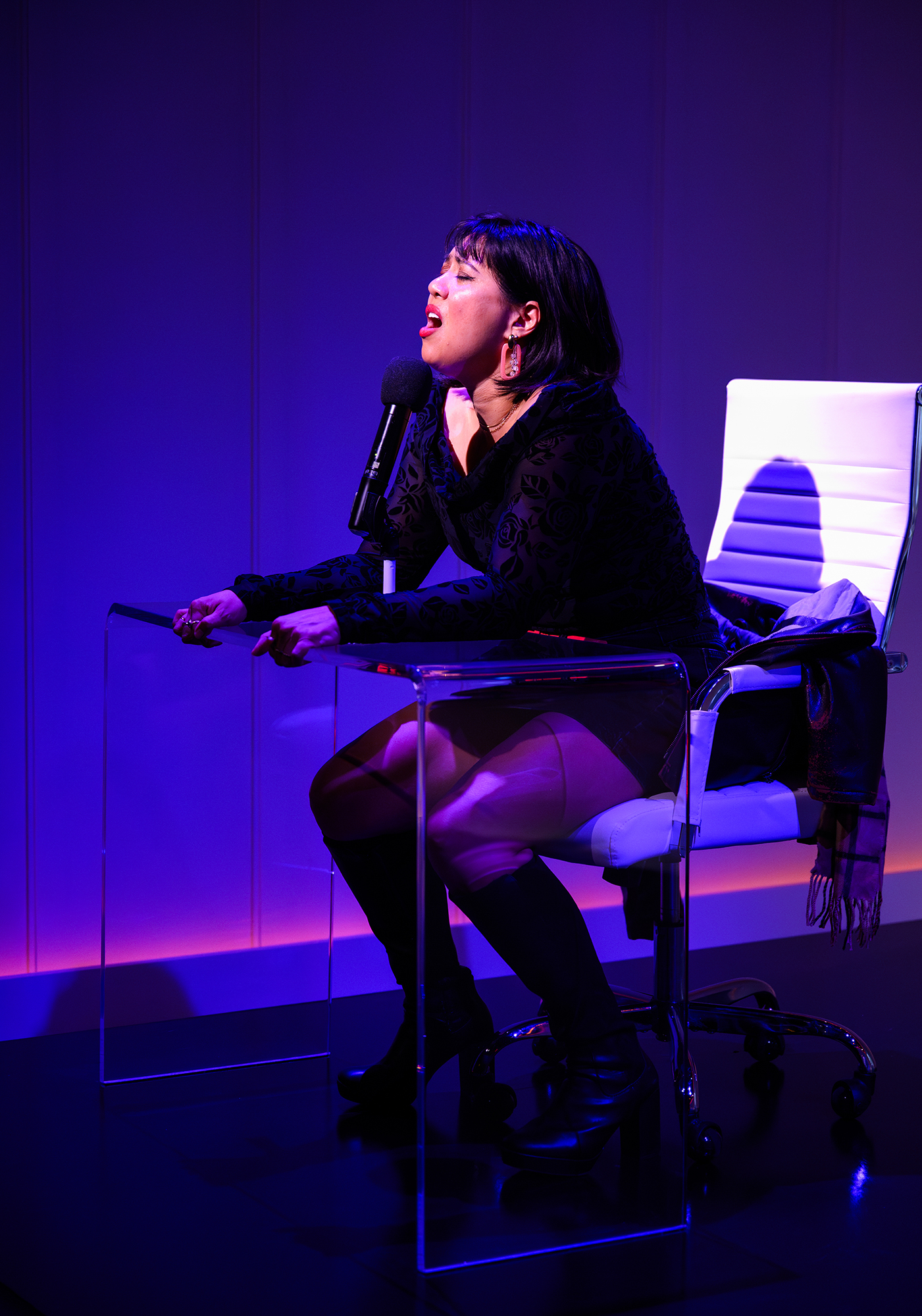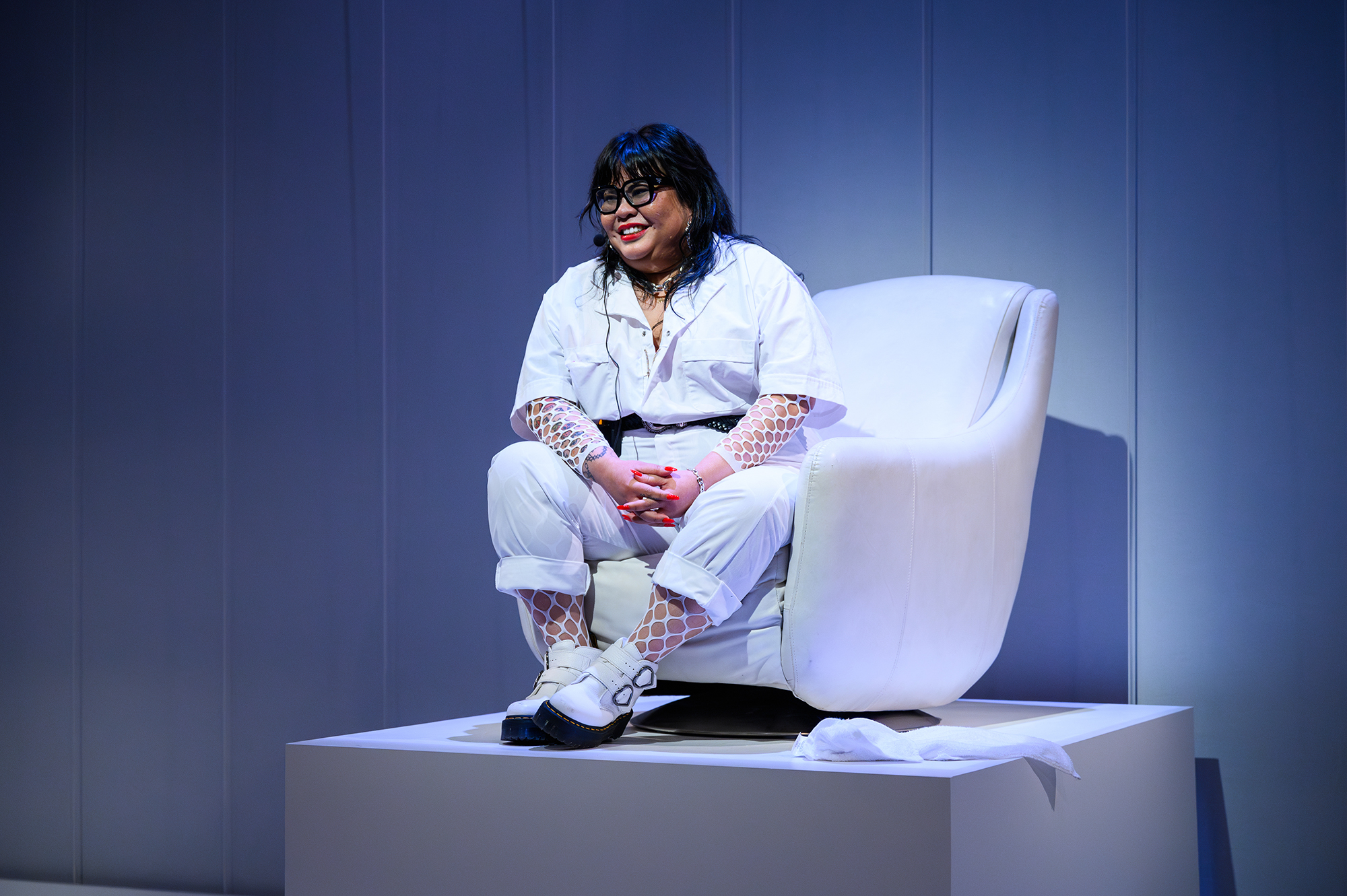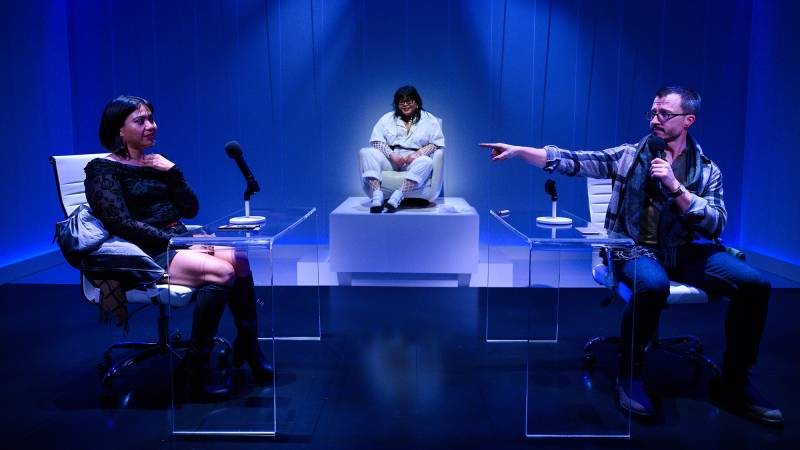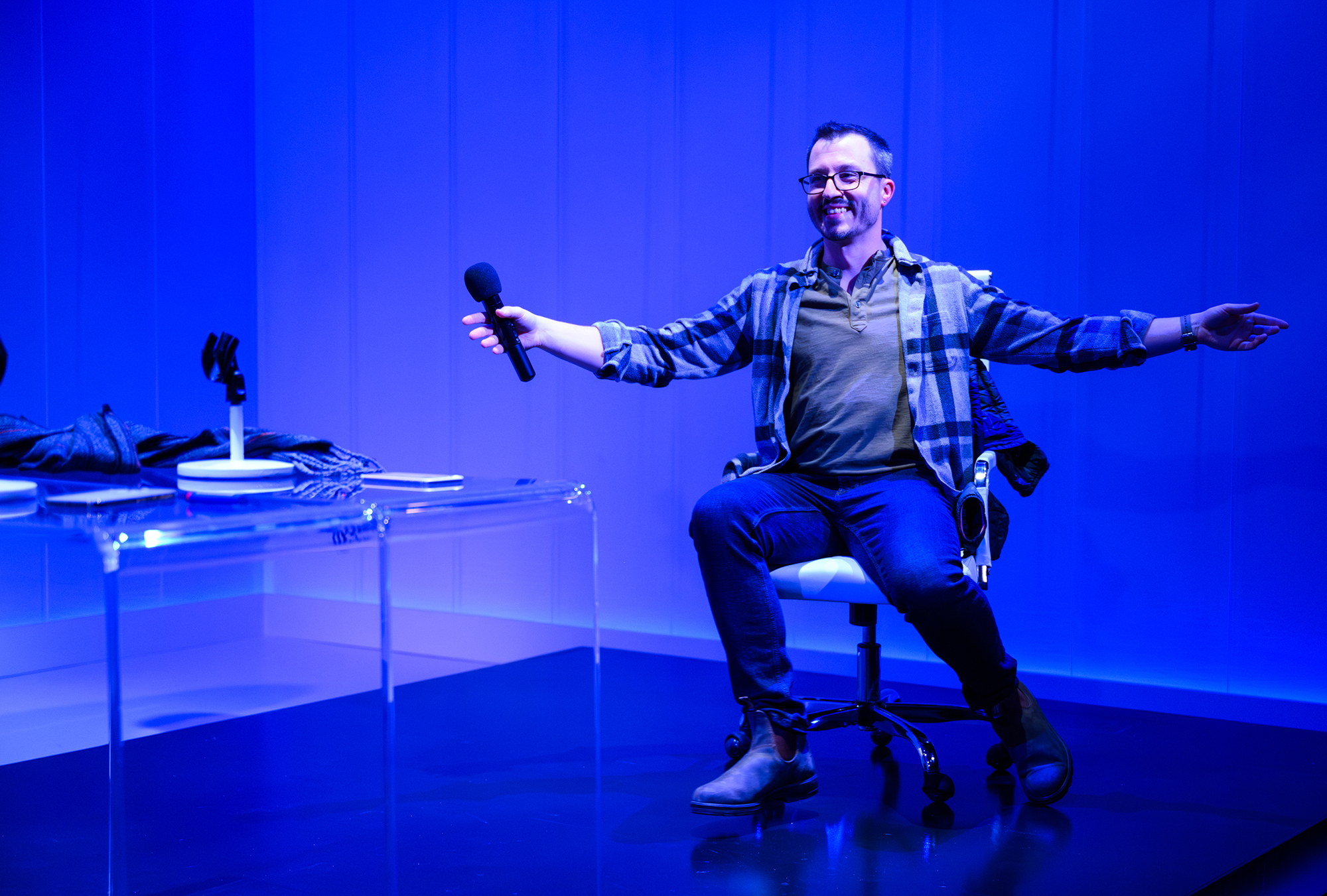One of the many endearing characteristics of the East Bay’s Shotgun Players is their commitment to holiday season shows with zero holiday content, but nonetheless lean heavily into the capricious landscape of human emotion. In other words: the feels. And Thirty-Six, by Leah Nanako Winkler, is rife with feelings, following two strangers who meet-not-quite-cute on an app and embark on a whirlwind first not-quite-date, accompanied by the hilariously laconic voice of the stage directions (nic feliciano).
In her script, Winkler appealingly captures the loaded subtext of such encounters, where every sentence uttered leaves two more unspoken. With so many conflicting sets of cookie-cutter, magazine-published “rules” for modern dating, simply figuring out which ones are in play can be a laborious process. This may explain the initial buzz surrounding Mandy Lee Catron’s 2015 New York Times article “To Fall in Love With Anyone, Do This,” which introduced psychologist Arthur Aron’s “36 Questions That Lead to Love” to a wider audience. The questions bypass the typical first-date tips and tricks about who pays for what, and which topics are off-limits, and cut straight to the emotional jugular with questions designed to create a sense of intimacy between participants — a way to jumpstart or reinforce a personal connection.

That’s David’s (Soren Santos) hope when his date Jenny (Lauren Andrei Garcia) arrives at the quiet New York bistro where they’ve agreed to meet. A transplant from Kentucky (like Winkler), he loves the New York Times, cheerfully admitting that it forms a cornerstone of his personality. He proposes they give the 36 Questions a shot. She almost immediately declares she’s only here to get laid. “I don’t want to give you depth, and I need you to respect that,” she asserts crisply. Despite their mismatched expectations, David soon winds up at Jenny’s “extremely nice” apartment, and the rest of the evening unfolds apace.
There’s a static quality to the staging of Thirty-Six that enhances its unflinching post-modernity. Paneled white walls — designed by Randy Wong-Westbooke — frame the action like an Instagram reel. Matching clear lucite tables and rolling office chairs are the only furniture, easily transforming from bistro interior to apartment décor to subway seating by the power of suggestion. Table mics on stands, worthy of a podcast studio, pin the actors to their seats during their most intimate moments, allowing that same power of suggestion (and a nod to ASMR) to illustrate a far more ribald encounter than the chastely garbed performers seated on opposite sides of the stage would otherwise suggest. Kudos to director Michelle Talgarow, and intimacy choreographer Natalie Greene, for finding ways to create heat and connection between the actors using technology as a scene partner rather than an obstacle.

As Jenny, Garcia presents convincingly as a no-nonsense, bluntly honest Millennial Miss on the prowl. She ricochets frenetically between self-assurance and self-doubt — sometimes spoken, sometimes implied by what’s left unsaid. Santos, as David, cultivates a gentler persona, down to his forgettable attire and unguarded facial expressions that speak volumes, whether telegraphing delight or scrunched up in disgust. As a world premiere production, there were some evident opening-night line stumbles, particularly from Garcia, but nothing that stalled the overall momentum.



